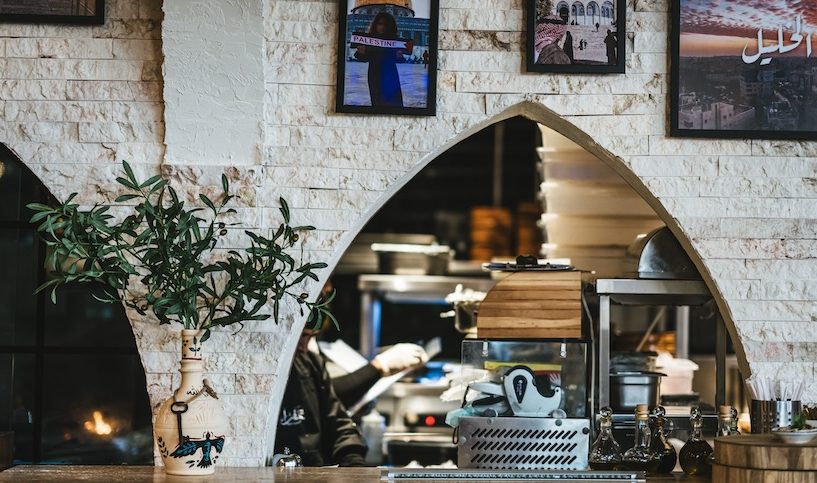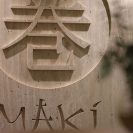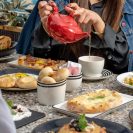Food is symbolic of resistance when words are inadequate. And we are out of words. We will not delve into a political commentary, as we’ve all heard enough. Let us, instead, celebrate everything magical about the power of food, and how it is deeply intertwined with culture. Food continues to shape identities and foster connections. Culinary traditions pass down stories, values, and heritage. This is what we are beautifully seeing at Beit Jafra. The authentic Palestinian eatery at The Avenues’ Souk area is always full, brimming with energy, with powerful Palestinian taraweed creating the backdrop for an immersive dining experience.
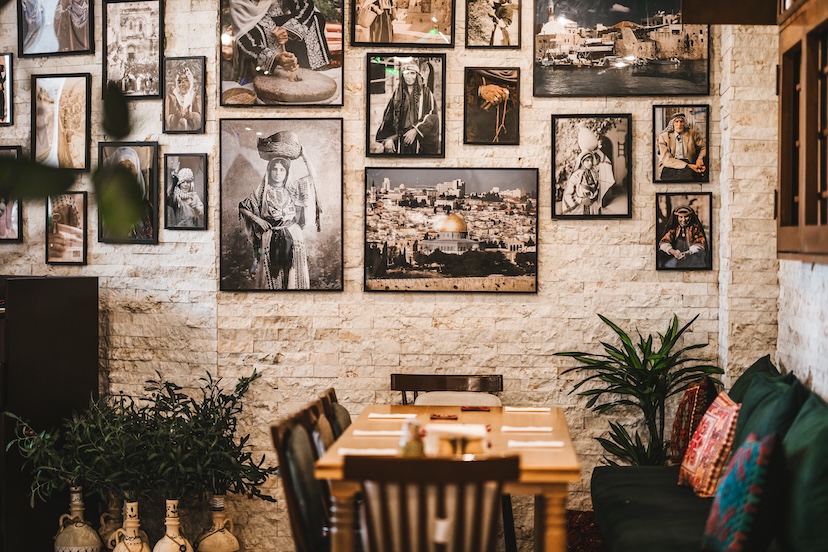
One bazaar colleague described how adamant she was about showing up in solidarity with Palestine but ended up staying for the za’atar. And the za’atar is glorious, as is the olive oil, and the kaak Al Quds. You are first greeted by this gracious array of delicacies set on your table. It’s your diyafa, after all, and how you would be received in a typical Palestinian home. The ritual of zaatar w zeit (Thyme and Olive oil) is observed to the finest detail. You tear off a piece of the delicious, freshly baked, sesame-encased bread and passionately dip it in the delicious olive oil, followed by homemade fragrant zaatar mix. This prepares the palate for the delicious flavors to come. This is a ritual of the land, an ode to generations of farmers who have mastered this handcrafted art of preparing the simplest form of sustenance: bread, oil, and herbs.
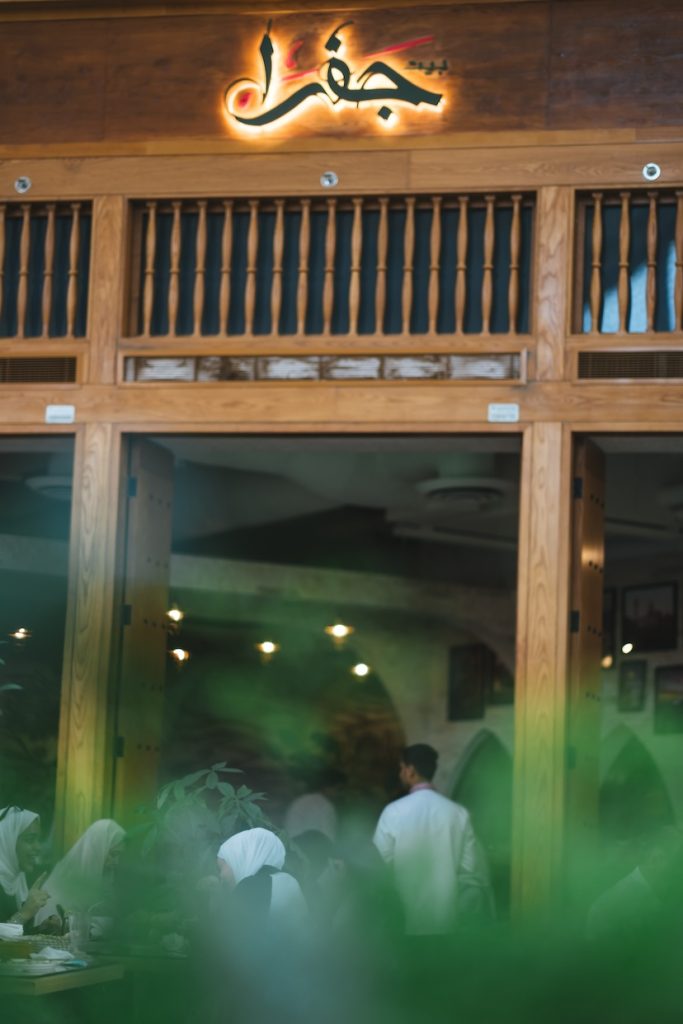
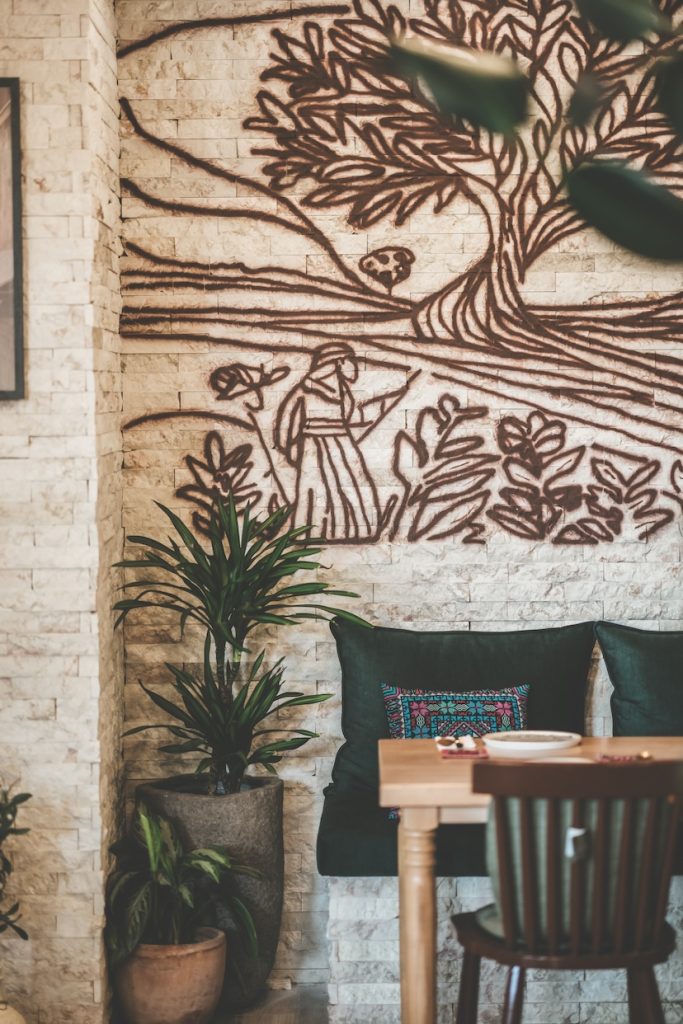
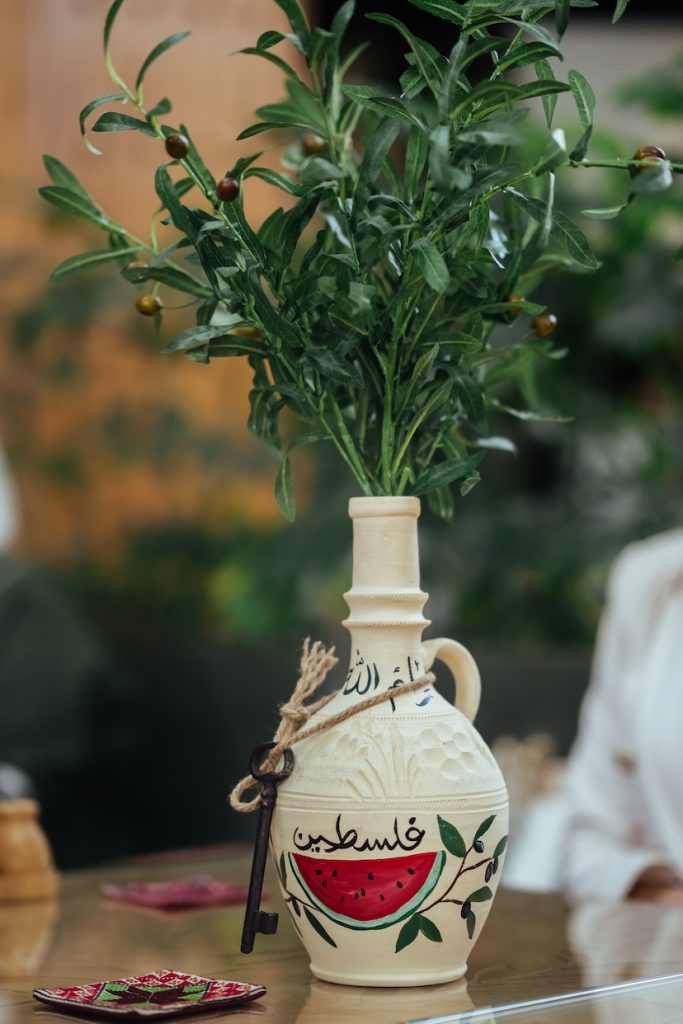
At Beit Jafra, the decor alone will take you through a panorama of historic Palestine. Inside, an array of moving photographs decorates the walls, the arched walls echo the architecture we see in the old streets of Jerusalem. The music, an incredible arrangement of the authentic taraweed once performed by women traditionally to air their joys and sadness, the Palestinian muwaal, if you may, sets the tone for the culinary escapade. From happier upbeat moments to slower, sombre movements, the music at Beit Jafra offers a glimpse into an often-overlooked element of Palestinian heritage.
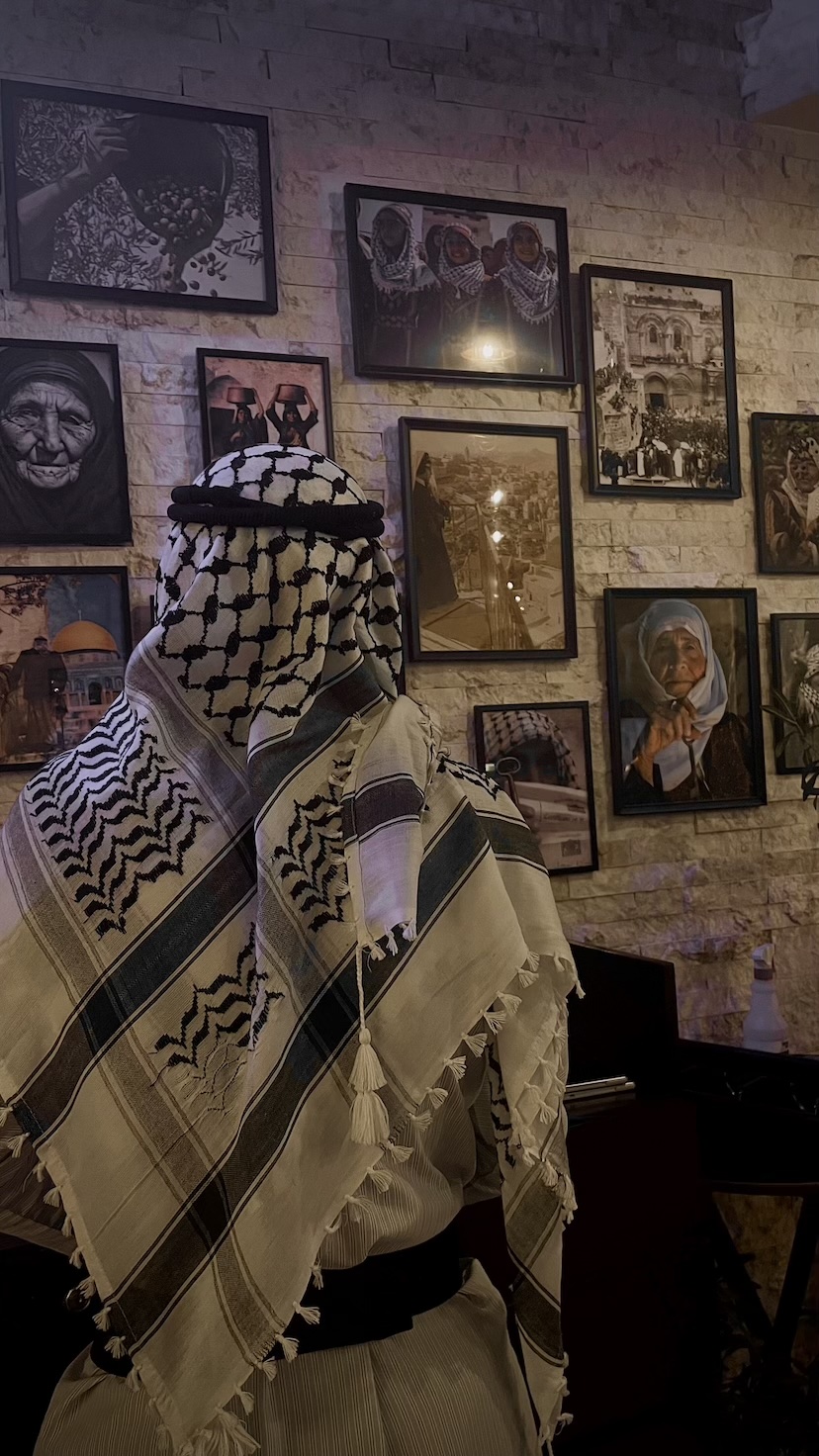
The name Jafra signifies beauty, or a beautiful girl, or a female gazelle. And this is what we see throughout this gorgeous space. Smiling faces, beautiful food, and awe-inspiring resilience.
Each table is adorned with a clay vase, hand painted with Palestinian-inspired designs by local artist Abrar Al-Zankawi. Around each vase is a key hanging on a rope, symbolic of the keys of return. Authentic Palestinian tatreez (embroidery) is prominent throughout. Wherever you turn, your senses flood with emotion. Pride, sadness, excitement? We’re excited that finally, restaurant-goers in Kuwait can get a taste of what it’s like to dine at your favorite Palestinian auntie’s house, because politics aside, Palestinian food is easily some of the tastiest, most delicious cuisine you could ever have the privilege of sampling. And it’s all about authentic ingredients, which Beit Jafra has down to an art.
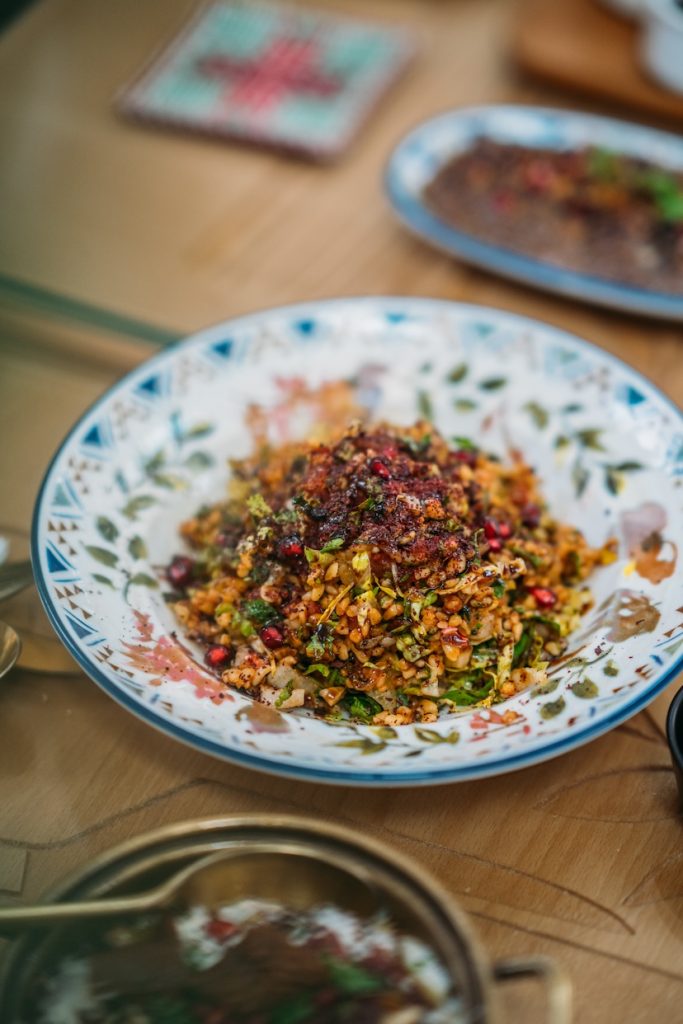
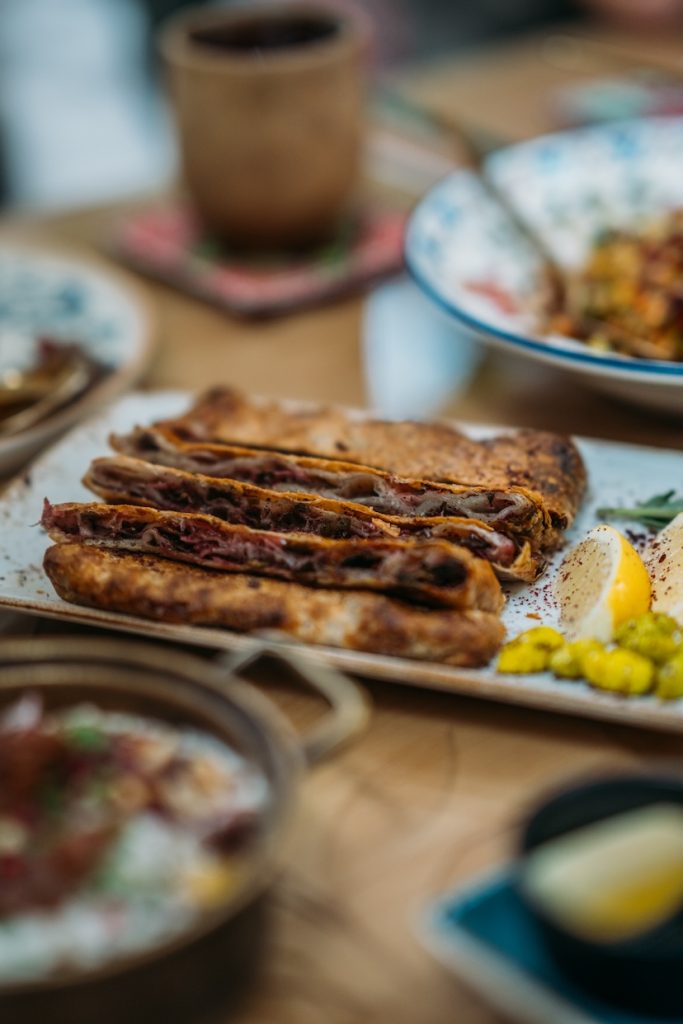
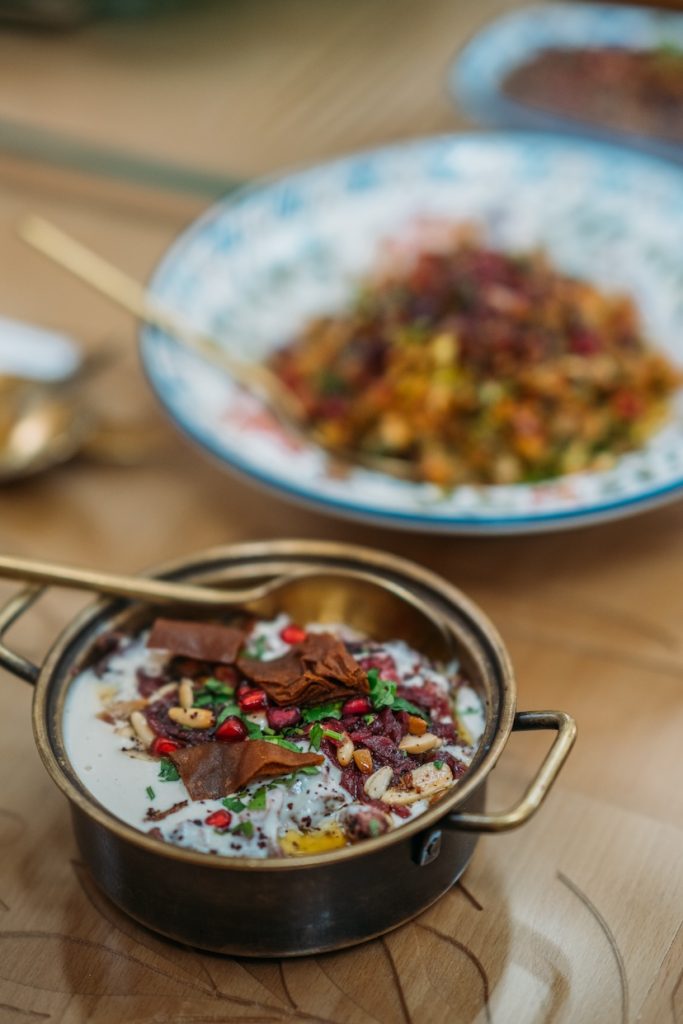
Beit Jafra’s menu is wide and varied, celebrating dishes from different Palestinian villages, prepared by Palestinian chefs and served by the friendliest Palestinian team. The heroes behind these dishes are amazing women, each with her unique story to tell. Each lady brings her story, her history, and her version of how she learned to serve up the classic offerings available at Beit Jafra. You can check out their stories by following @Jafra.Kuwait on Instagram.
There’s nothing fancy going on here, just pure authentic homely dishes prepared fresh daily for breakfast, sharing plates, soups and salads, and main courses fit for a family feast like Maglooba, Mloukhia, and msakhan with desserts like the OG Nabulsi Kunafa with an unforgettable cheese pull and Roz bihaleeb.
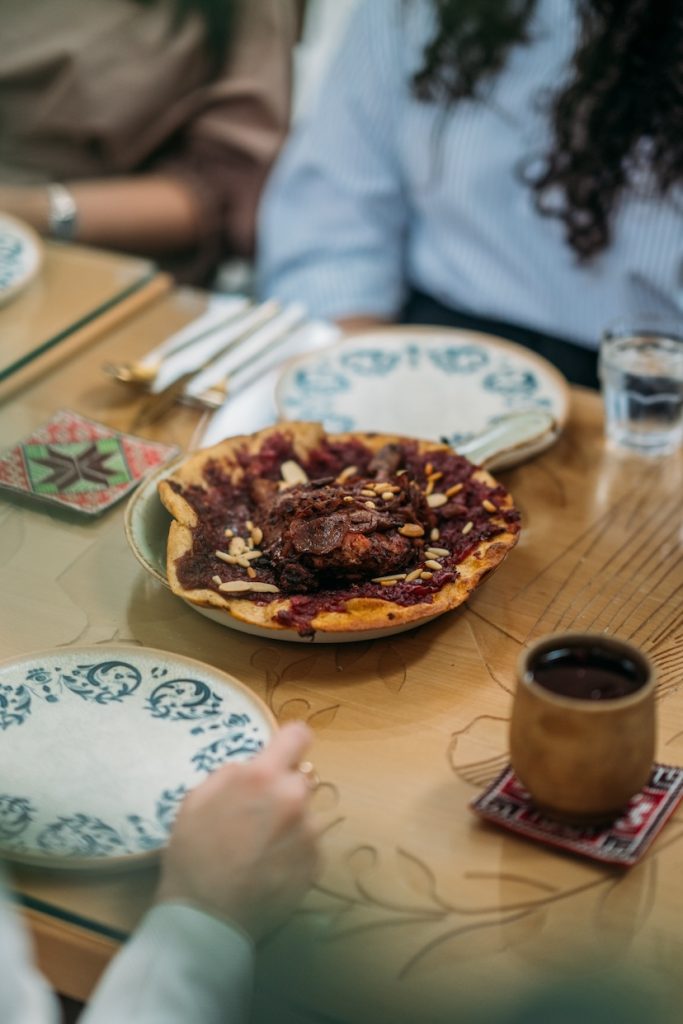
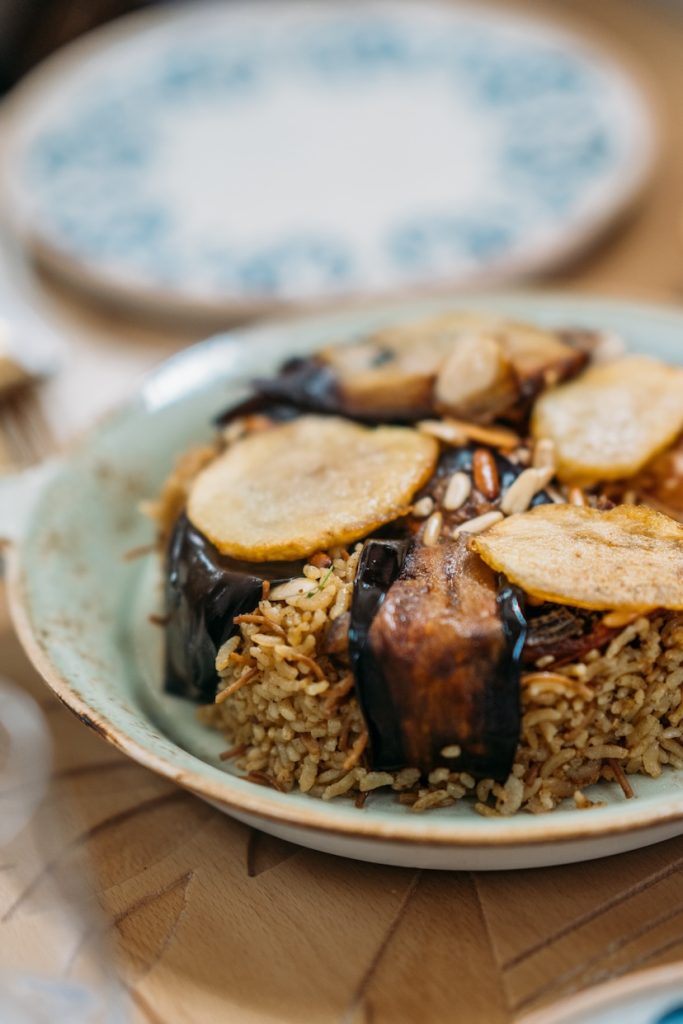

One of the most preferred dishes at Beit Jafra has to be the classic Zaatar Mutabbaq, an often-forgotten dish amidst a sea of manaqeesh offerings. While we do love the classic manqousheh, the art of preparing Mutabbaq is as multi-layered as this flaky pastry. Unlike dried zaatar which features in most Levantine pastries, Mutabbaq requires fresh zaatar, the first distinct factor that makes this Palestinian pastry stand out. The other element is olive oil, which is plentiful; you smell it, see it, and taste it with every bite. Paired off with zesty sumac, and sweet onions, you come to Beit Jafra just for this. Trust us, you won’t forget it!
Personally, the fattet msakhan was one of my favorites, albeit a more modern, rendition of the classic. They also serve up a mean classic Fattet Hummus for those who love the original. I also loved the powerful flavors of the Roumaniya, a classic lentil and eggplant stew prepared with delicious pomegranate molasses, and how the Maglooba, usually served in a giant pot, is scaled down into smaller individual portions. Each small pot is prepared as you would prepare it at home, but you also get to be a part of the joyful ritual of drumming on the pot after flipping it to reveal the glorious arrangement of rice, chicken, and vegetables, served with a small bowl of yogurt just like the way teta makes it.
Visit Beit Jafra today at The Souk- The Avenues. For more information, follow @jafra.kuwait on Instagram. Photography by Muneera AlKhulaifi @I9ora on Instagram.



